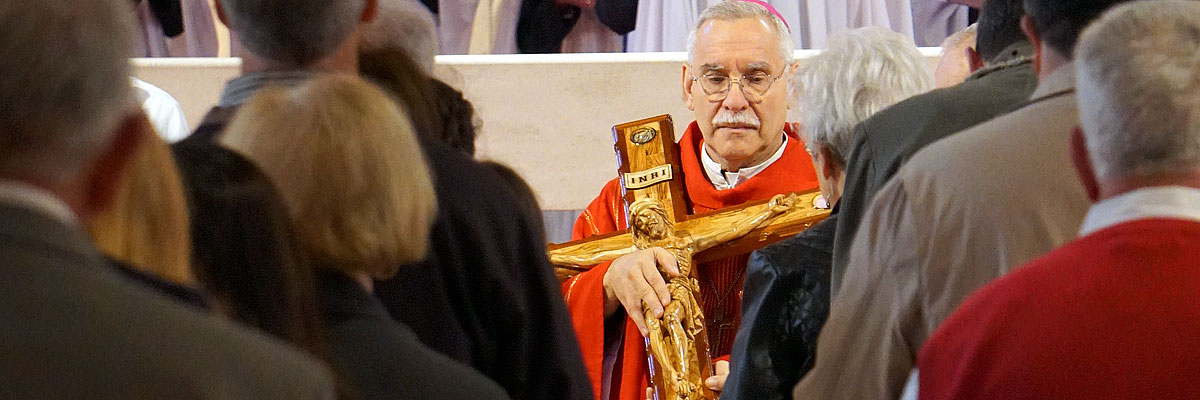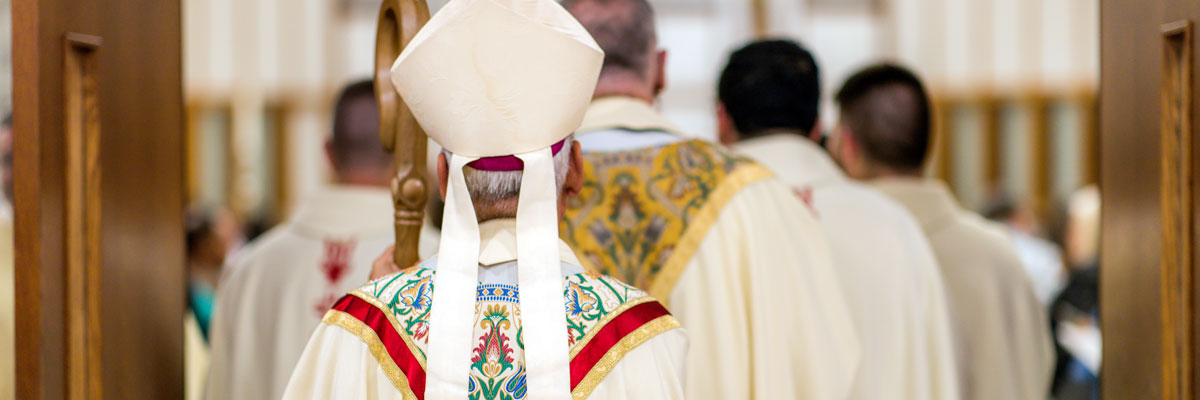Official Website of the
Catholic Diocese of Little Rock
Third Sunday of Easter, Year C
Published: May 5, 2019
Bishop Anthony B. Taylor preached the following homily during the Mass on the Grass at St. Thomas Aquinas University Parish in Fayetteville on Sunday, May 5, 2019.

Bishop Taylor
Ten days ago, on April 26, I celebrated my 40th anniversary of ordination to the diaconate, the last step before priesthood a year later.
It was at diaconate that I promised prayer, obedience and celibacy. At ordination to the priesthood I renewed these promises, but I was already bound to them since diaconate.
That day of commitment was the pivot on which my whole life turned. All that I had done before, including seminary, prepared me for what the Lord was now asking me to dedicate the rest of my life to.
Everything that they had done before, including their three years with Jesus as his disciples, literally his students (his seminarians), prepared them for what he was now asking them to dedicate the rest of their lives: to be fishers of men.
In today’s Gospel we see that Jesus’ disciples, and especially Peter, had this same experience. Everything that they had done before, including their three years with Jesus as his disciples, literally his students (his seminarians), prepared them for what he was now asking them to dedicate the rest of their lives: to be fishers of men.
Today’s Gospel describes this turning point in their lives from two perspectives: hope and forgiveness.
Hope — Jesus entrusted to them a mission that God will cause to be amazingly fruitful, symbolized by the great catch of fish in today’s Gospel. Working for themselves they catch nothing, but working for the Lord they catch more than they know what to do with. The mission that Jesus is entrusting to them will fill their lives with meaning and purpose and hope. They’re now living for something bigger than themselves.
Forgiveness — But before undertaking this mission, they have a personal matter they need to take care of: they who had abandoned Jesus need to be forgiven themselves before they presume to bring Jesus’ forgiveness to others, and Peter in particular. He had denied Jesus three times because he was afraid that he might be arrested and crucified too.
Today Jesus asks him whether his love is now stronger than his fear. Is he ready to acknowledge not only that he knows Jesus, but in fact loves him? Three professions of love to erase his three denials, and it is only then that Jesus entrusts to him the care of his sheep.
And at the same time, Jesus emphasizes that in order to serve him faithfully, Peter will have to embrace the very same martyrdom that he had earlier tried to avoid: “You will stretch out your hands … (and be led) where you do not want to go — (thereby) signifying by what kind of death (Peter) would glorify God.”
Jesus has called every one of us gathered here today to be his disciples too, and he sends us forth to bring hope and forgiveness to those we meet.
If we seek mainly our own self-interest — work mainly for ourselves and our own advancement — like the fishermen in today’s Gospel, then our nets will be empty, even if they appear to be full of things. But if we are selfless — truly working for the Lord — he will cause us to be amazingly fruitful, whatever our station in life.
But to fulfill our mission effectively, we need 1.) to receive the Lord’s forgiveness ourselves, and 2.) to be ready to suffer adversity as the cost of being faithful to God, embracing possible martyrdom like Jesus, our love stronger than our fear.
That is how the Lord fills our lives with meaning and purpose and hope: not just living for something bigger than ourselves, but indeed living for the Lord and doing his will, the biggest thing of all.









